Richard Ha writes:
small children, as well as Kapono Pa and me, manned a booth for the Big Island Community Coalition (BICC) and signed up new members.
The BICC’s mission is to lower electricity rates on the Big
Island so that they are the lowest in the state.
I got involved with the BICC for the same reason I got involved in Ku‘oko‘a: We need to align the needs of the people with the needs
of the utility. The world is changing and we must adapt.
This is the same reason I got involved with the Thirty Meter Telescope; it helps our community transition. And it’s also why I now support the Hawaii Island Beacon Community, which is involved in making the health care system more efficient, and therefore more affordable.
Did you see the front page headline in yesterday’s Hawaii Tribune-Herald?
Poor Hit Hardest by Rate Hikes
Should a proposed electricity rate increase of 4.2 percent in 2013 be approved by the state’s Public Utilities Commission, Big Island low-income families will be among those hardest hit by higher power bills.
Last year, almost a third of all Hawaii families that sought federal assistance with paying their electricity bills were located on Hawaii Island.
“For many of our families, the money covers one or two bill payments, and that’s it. Then they’re in trouble,” said [Kayla Rosenfeld, spokeswoman for the Department of Human Services]….. “I get concerned every time I see that HELCO is getting a rate increase because it has a tremendous impact on these families. Their bills are already high now…. And for the elderly, some have to make a choice each month, between buying food or paying for medicine or paying their electric bill.” Read the rest
The bottom line re: all my involvement is that agriculture
is a hard business. I am unable to raise my workers’ pay, and they are coming under increasing pressure from the economy.
Everything I do starts with the objective of helping my farm workers. And helping our workers helps everyone in the community, as well.

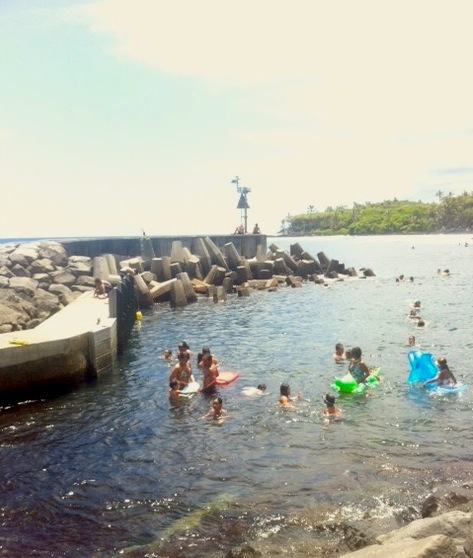
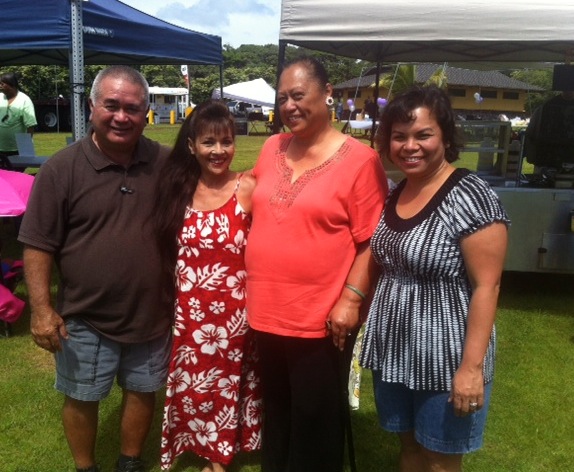
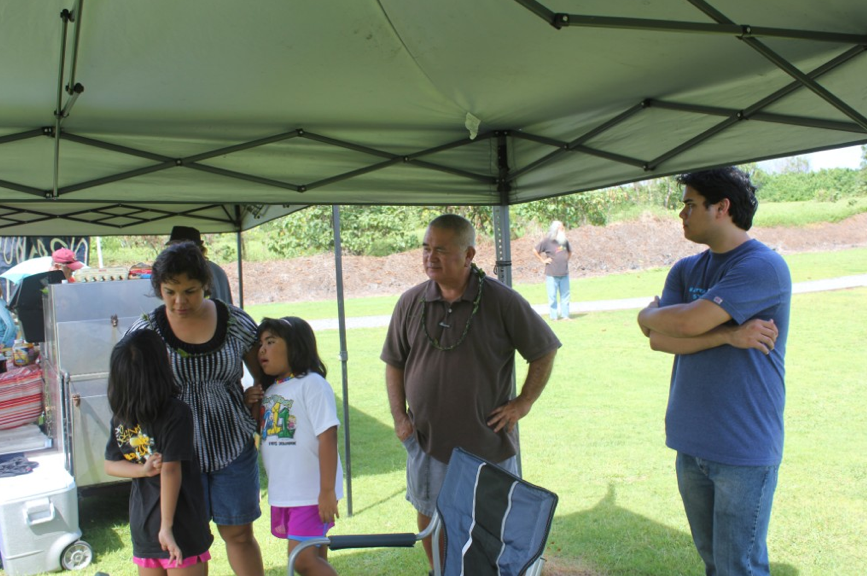
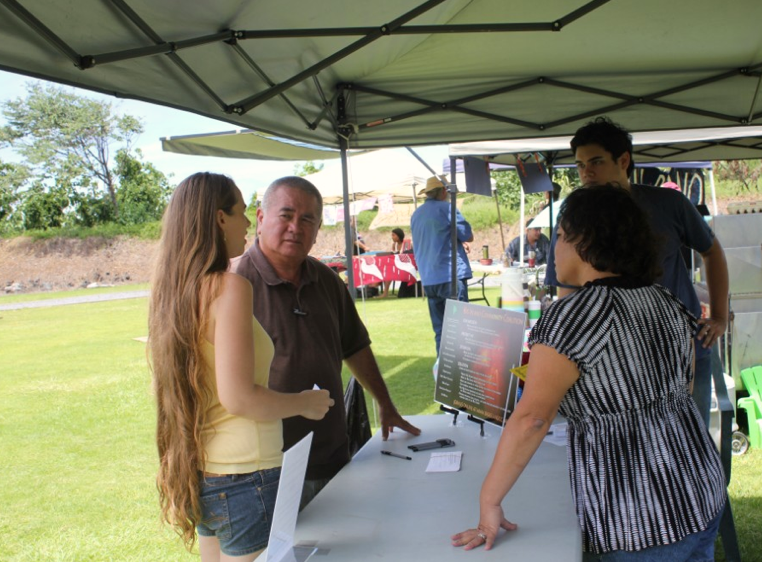
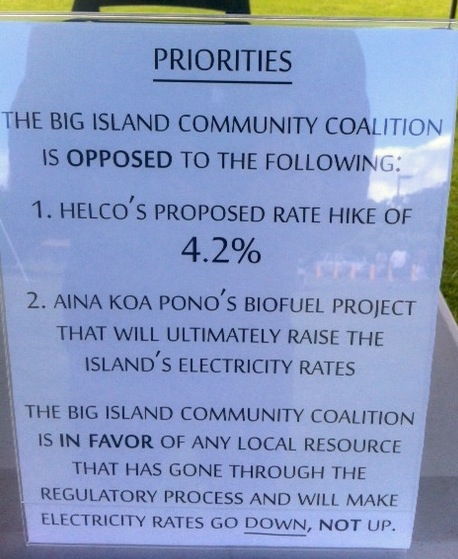
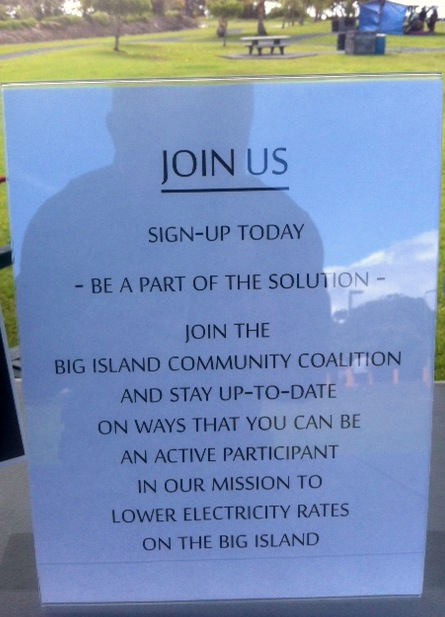
Aloha Richard, it really doesn’t take money, it takes a community effort. You saw first hand the power of online petitions. It has to be said that geothermal should have lower rates than wind, solar and biodiesel.
Steps to get rates lowered:
1. There is a state bill to require HEI/HECO to unencrypt their rate structure. This is where the community comes in, petition the county council to provide the status on this bill.
2. There is a senate bill requesting the attorney general to audit geothermal costs and provide a report. Another community effort demanding the report and synopsis of the results.
3. Support geothermal in the near future, move top priority support to large tidal turbine farms within the next five years. Tidal turbines will bring electric rates equivalent to hydroelectric, about 10 cents per kilowatt-hour.
This is misleading. You’re only showing your viewpoint, not that of the communities of Lani Puna and Leilani which are most affected by current geothermal development. There was another booth at this same gathering, handing out information contrary to your claims that geothermal is cheap, clean, safe.
Hi Bett. I think you read much more into this blog than was actually in it. The Big island Community Coalition has not taken a position on geothermal. It will weigh in when the PUC holds a hearing for a definite project. The objective of the BICC is to pursue lower electricity cost alternatives. The burden of high cost electricity is becoming just too much to bear.